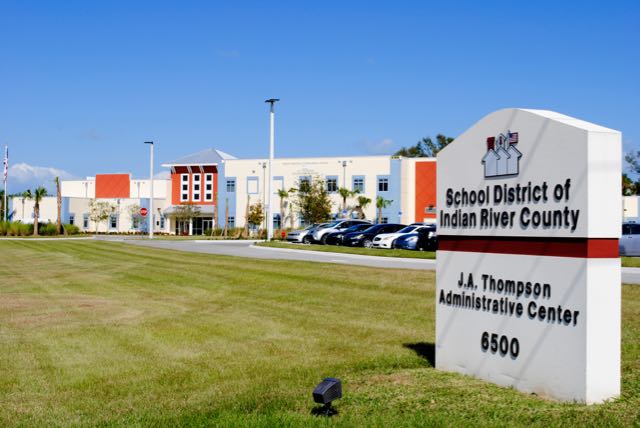
The county school district now wants voters to once again extend – this time until 2029 – a special tax assessment originally approved to temporarily make up for state education funding cuts during the Great Recession of 2008-2009.
The .5 mil tax has brought in between $8 million and $12.2 million annually as real property values have not only rebounded but soared over the past 15 years. Just this past year, taxable property values rose another 12.6 percent countywide.
Since the pandemic, the school district operating budget has ballooned nearly 20 percent from $322 million to $386 million, while the number of students attending public school has declined from 17,450 to 17,098.
Is it time to finally cut the cord on the 2008 recession-era special assessment when voters go to the polls on Nov. 5?
State funding to support schools has increased markedly under Gov. Ron DeSantis. The recently signed Florida budget includes $1.25 billion in funding to provide salary increases for teachers and other instructional personnel, a $201.8 million increase and “an historic” $28.4 billion in funding for K-12 public schools.
Central Beach resident Mark Mucher, a longtime civic activist, opposed the special assessment in 2008, has voted no every time it’s been on the ballot, and will vote no again this year. “They said it was going to be the only time, and the next time, they said it would be the last,” Mucher said. “I always vote no.”
The main problem is the district now is using “special assessment” dollars on recurring expenses that should be budgeted into the regular property tax levied for schools.
The annual school property tax rate goes through rigorous public scrutiny, with workshops, public hearings and at least three votes by the elected school board – one to set the maximum tax rate that appears on the Truth In Millage or TRIM statements in August, plus two votes to approve the final budget, and the tax rate needed to fund it.
Historically, residents have been sympathetic to the school district’s broad pitch for extension of the special tax filled with platitudes about how it was needed to hire better teachers and better prepare students.
“I don’t have a problem personally paying for it. At the end of the day, we have to have students very well prepared,” said Indian River Shores Councilman Bob Auwaerter.
But if the school district genuinely needs the extra funds to recruit and retain good teachers, to maintain the district’s newly achieved “A” grade, and to create the “highest skilled workforce on the Treasure Coast,” there’s nothing stopping them from incorporating that money in the regular school property tax.
Then, the staff and elected school board would need to justify the expenditure to taxpayers each year.
Last time the temporary tax was on the ballot was during an August primary, and roughly 17,000 people voted for it, and 10,000 people voted against it.
The school district has tried to increase the odds of passage by using various official communication tools to get out the vote of those who benefit from the money.
In the past, anyone registered in the district’s automated phone system – employees, parents of students and even relatives of students authorized to pick up students – have been robo-called before the election to remind them that the special assessment is on the ballot.
Should extension of the special tax be rejected this year, the 2024-25 school year budget would not take a hit. District officials would have several months to prepare the 2025-26 school year budget proposal after the outcome of the vote.
The Taxpayers Association of Indian River County is still reviewing the school district budget and has not yet taken an official position on the renewal of the .5 mil special assessment. For right now, Taxpayers President Lance Lunceford only laid out the choice about the assessment, which he noted “has been in place for years.”
“If you feel the school district needs the funds for teachers, performing arts, and technology implementation, then consider supporting it. If you think that rising property values are taking more out of your pocketbook for taxes, then consider voting against it,” he said.
A School Board meeting to set the maximum property tax rate to be advertised in the TRIM notice is scheduled for July 16, and a 2024-2025 budget hearing is tentatively scheduled for July 22.
Staff writer Lisa Zahner contributed to this news analysis.



